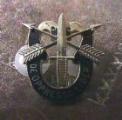Dayuhan----
Robert Jones would say ---the current problem in Iraq is the lack of the rule of law and good governance.
http://www.thedailybeast.com/article...ni-revolt.html
Taken from the above link:
“I can assure you a widespread spectrum of groups participated in what happened in Mosul. The media is focusing on ISIS,” he said. “They are influential and empowered on the ground and they are participating in this armed revolution. But we shouldn’t be blamed for that.”
The Maliki government reneged on its promises to build an inclusive government with the Sunnis as soon as the American troops left Iraq, Hashimi said, and went after Sunni moderate leaders even though those leaders had led the Sunni awakening in 2008 that resulted in extremist groups leaving Iraq in the first place.
“We managed to clean up our territories, especially Anbar, and we put an end for a time to he extremists. But Nouri al-Maliki, instead of involving the Sunni moderates, he attacked them, starting with me,” said Hashimi. “There are two sides, the extremists and moderates. If you target the moderates, you intentionally create a vacuum that could be filled by the extremists and that’s exactly what happened.”
As former U.S. official in Iraq Ali Khedery wrote in The Washington Post, the U.S. policy during the crucial years following the 2008 Sunni awakening was to place faith in Maliki to build an inclusive system rather than use American influence to support other political actors.
WaPo link:
http://m.washingtonpost.com/opinions...9f1_story.html
Hashimi said that the Obama administration was repeating that mistake again by sending U.S. advisers and equipment to shore up the Iraqi military and considering U.S. military force against Sunnis inside Iraq. He urged the U.S. to stay out of the conflict.
“It’s a really annoying development. The U.S. is in the process of committing itself into another set of grave mistakes. Definitely we consider all this military support to Nouri al-Maliki an alliance with Iran against the Arab Sunnis,” he said. “Try to avoid any use of military means, try to be fair, try to diffuse the bomb by asking Nouri al-Maliki to immediately to establish a caretaker government. Try to be neutral at least.”
And don’t expect another Anbar awakening this time around, Hashimi warned. The Sunni tribes still remember what happened last time and they are not going to make the same mistake of expelling the extremists and thereby leaving themselves vulnerable to Shiite forces.
“Nobody from the Arab Sunnis are ready to repeat the same experience of 2008, no way. But if we establish a real state in Baghdad, extremism will be over, I assure you.”
“The U.S. ethically is still in charge of our security, our stability and preventing interference from foreign countries, whether neighboring countries or far away countries, it is still the responsibility of the U.S.,” he said. “Transparency, human rights, no corruption, justice, no interference. All of these values have been talked about nicely but nobody has pressed the government on which have been achieved and which have failed. That is the role of the United States.”









Bookmarks